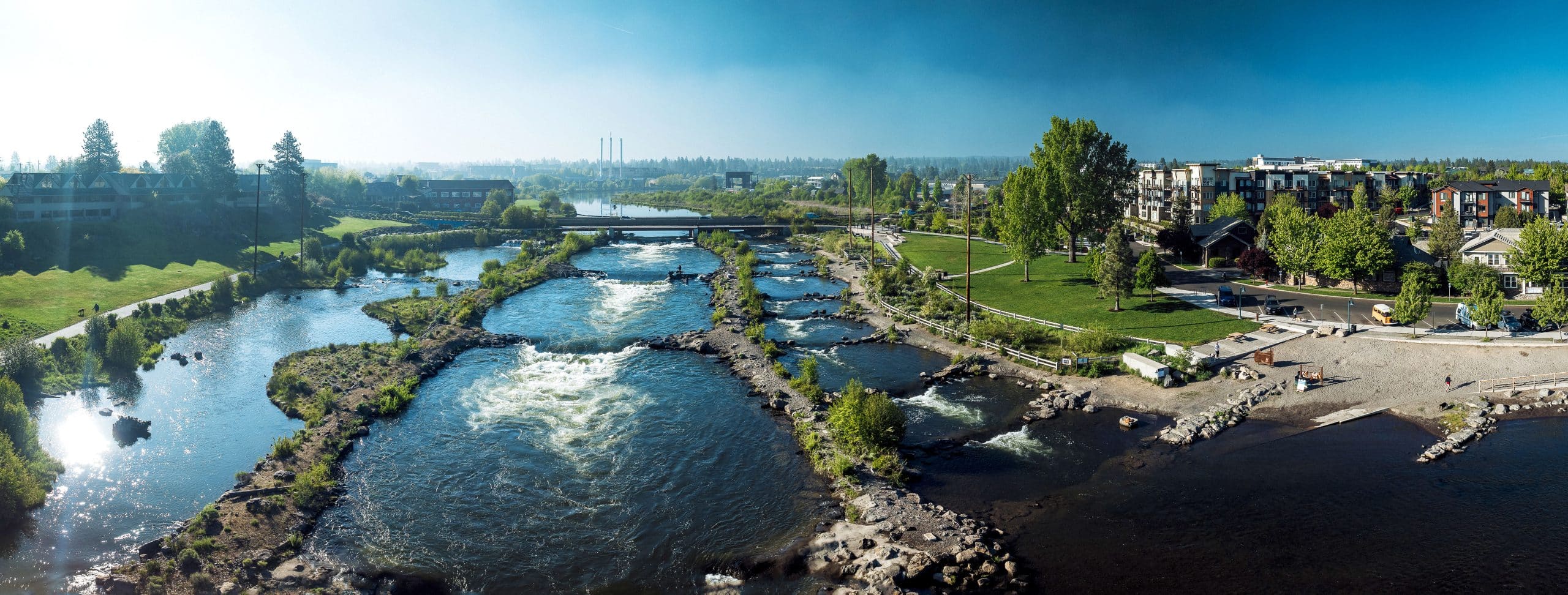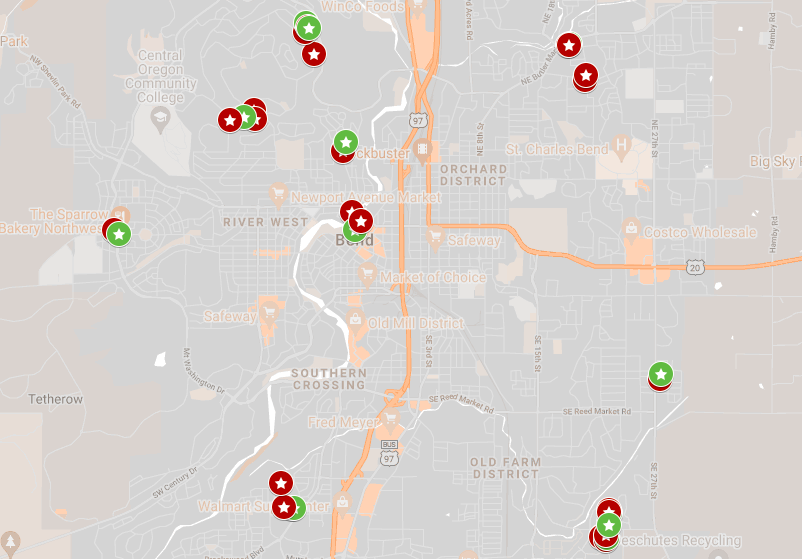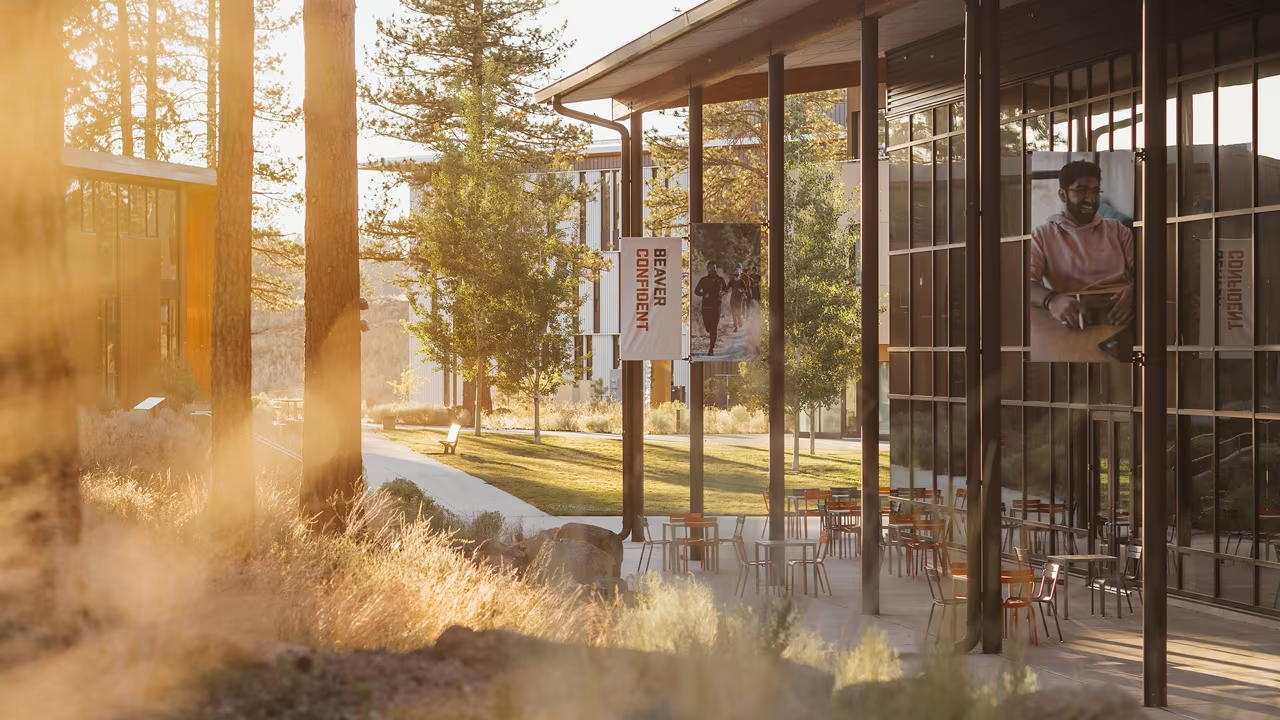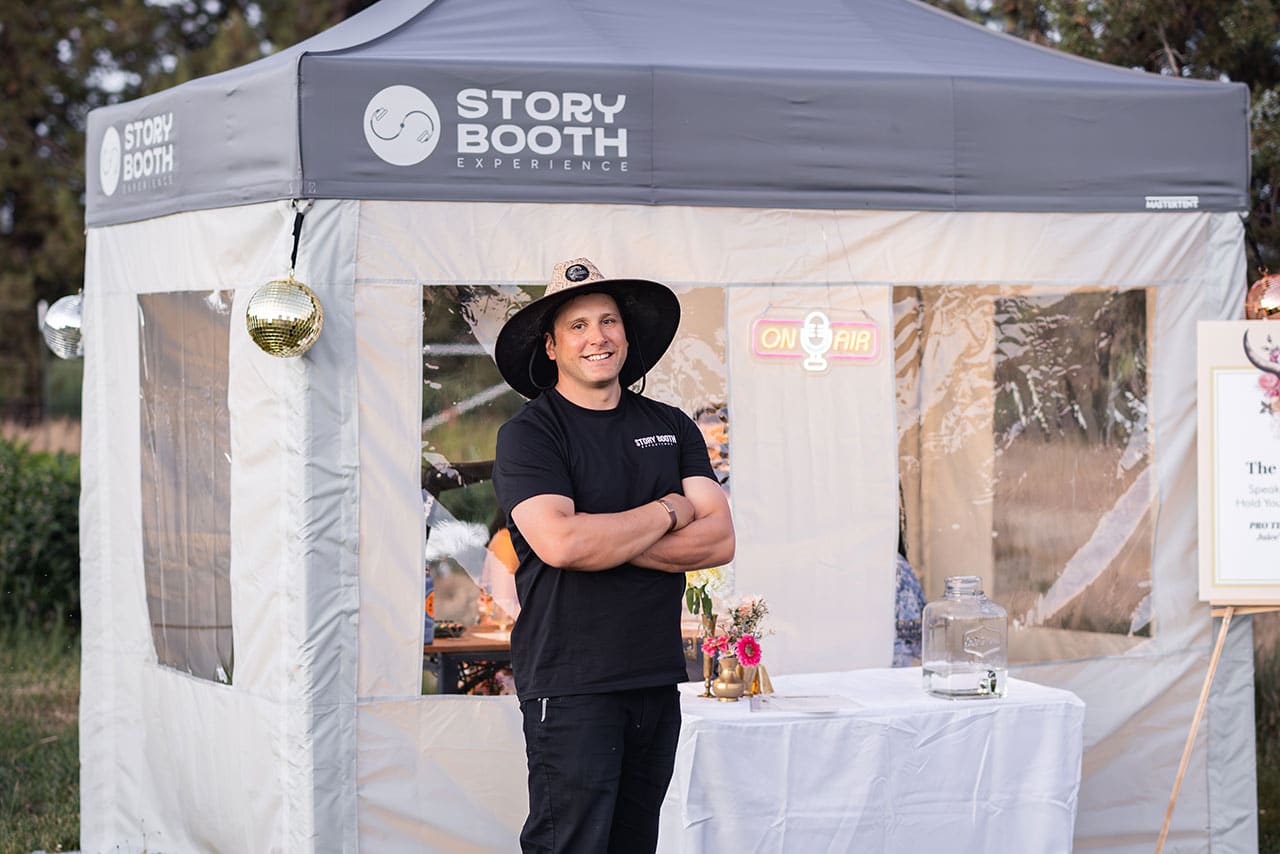A strategy is emerging among businesses wanting to improve the state of the world; the term “nature-positive” refers to a global goal, and Bend could be a forerunner to the movement. “Bend has the potential to be the first city to have a systemic approach to mitigating human impacts on nature and climate, an epicenter for nature-positive strategies,” said Tony Hansen of Bend, director of natural capital at management consulting firm McKinsey & Company. [Photo above by Cody Rheault]
While many climate strategies address the carbon footprint, a nature-positive strategy considers the entire nature footprint. Emissions are one factor, but others include fresh water use, chemical pollution, forest coverage and biodiversity loss from top to bottom of a business’ supply chain. The UN’s Global Biodiversity Framework (GBF), a pathway to halt and reverse dangerous and detrimental human impacts on nature by 2030, outlines these priorities.
Hansen works with corporations and large public bodies to create practical blueprints to enact nature-positive initiatives, and there’s one small business in Central Oregon leading the way.
“Mountain Burger represents the possibility of small businesses becoming nature-positive. It’s exciting to see who might follow suit in Bend,” he said.
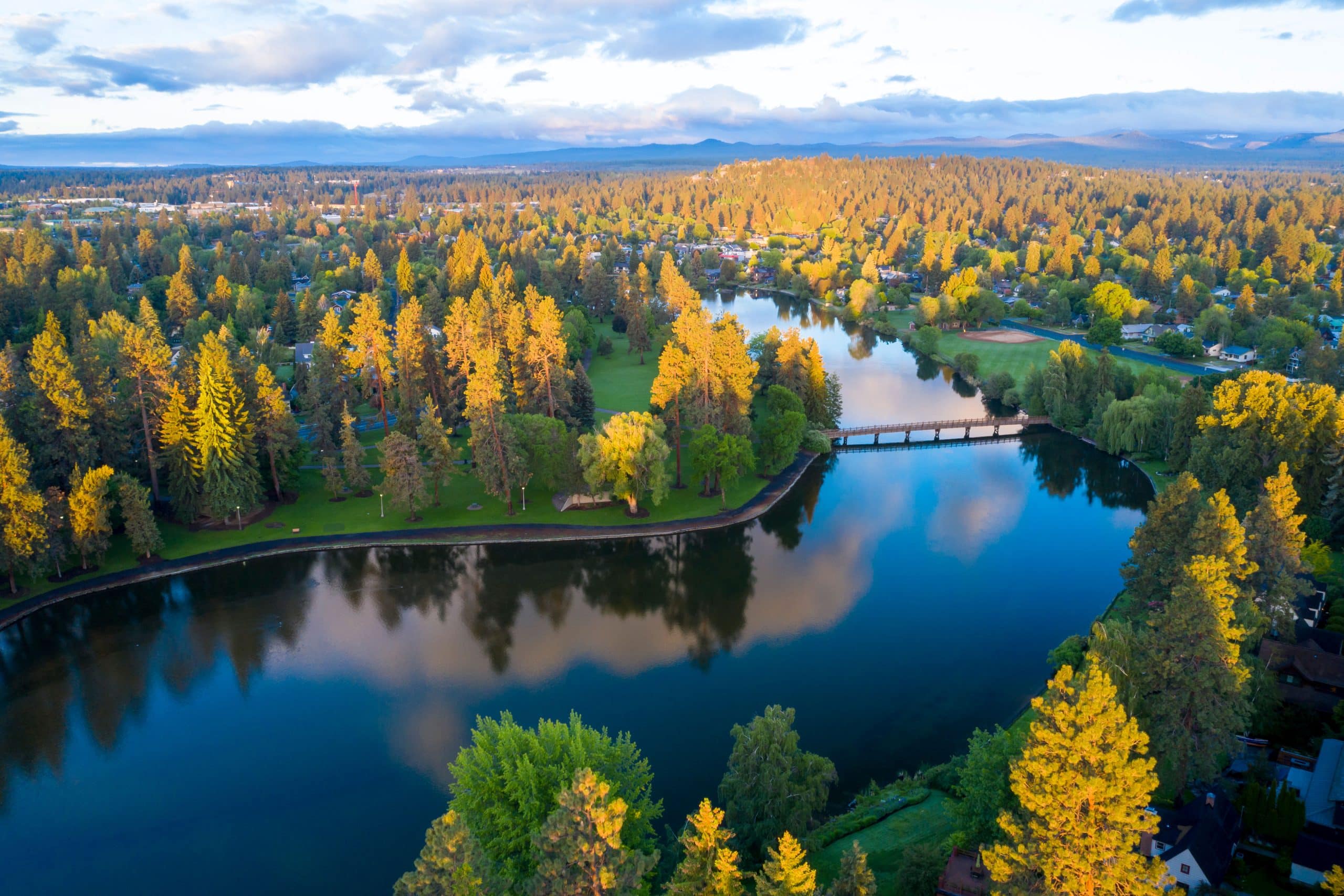
Mountain Burger’s Nature Positive Strategy
Located in NorthWest Crossing, Mountain Burger is the first in the area to tackle a nature-positive strategy. Local investors and Mountain Burger co-owners Sara and Dan Hobin wanted to act on the climate crisis, which they see affecting Bend in myriad ways. For instance, the summer wildfire smoke caused a 6% drop in tourism in 2024.
“It’s time to think about dependency on natural capital, risk from natural disasters, environmental impact, and what I can do to reduce that impact with my business,” said Dan Hobin, who was previously founder and CEO of Bend software marketing firm G5.
Hobin, who had a climate action plan for Mountain Burger from the beginning, reached out to Hansen to deepen his understanding of how he could enact a nature-positive strategy. Unfortunately, the existing guidance isn’t tailored to small businesses such as Mountain Burger. So Hansen and Hobin brought Tanner Fields into the conversation. Fields, a sustainability consultant based in Bend, scaled the nature-positive model specifically for Mountain Burger.
“For the most part, the model is our brainchild,” said Fields, who once led sustainability initiatives at Mt. Bachelor Ski Resort. “The nature-positive field is new. We are hoping models become templatable, making nature-positive strategies more accessible and easier to implement for small businesses.”
Fields’ work with Mountain Burger resulted in a 14-page assessment detailing Mountain Burger’s nature-related dependencies, impacts, risks and opportunities. Mountain Burger had already integrated an electric griddle, LED light bulbs, motion sensor light switches, renewable energy, natural lighting and a composting and recycling program. However, 85% of its impact was from buying beef alone—the cattle industry is one of the most destructive to nature.
That revelation spurred the creation of a 50/50 burger made up of half grass-fed meat from a regenerative farm and half plant-based ingredients, such as onions, mushroom, shallots and nori.
“We are for meat eaters, plant eaters and everything in between. We don’t shame people; rather encourage them to consider eating less meat,” said Hobin, who notes that sales of the 50/50 burger are increasing as hoped.
The 50/50 burger is an example of what Hansen would call an opportunity that arises from nature-positive strategies: “In our framework, there’s both defense (preventing climate fallout) and offense (creating opportunity). Mountain Burger discovered a unique, marketable product in the 50/50. Customers, employees, and investors are increasingly drawn to businesses that have good environmental practices.”
“I want to prove that you can have a sustainable restaurant with a successful business model,” added Hobin.
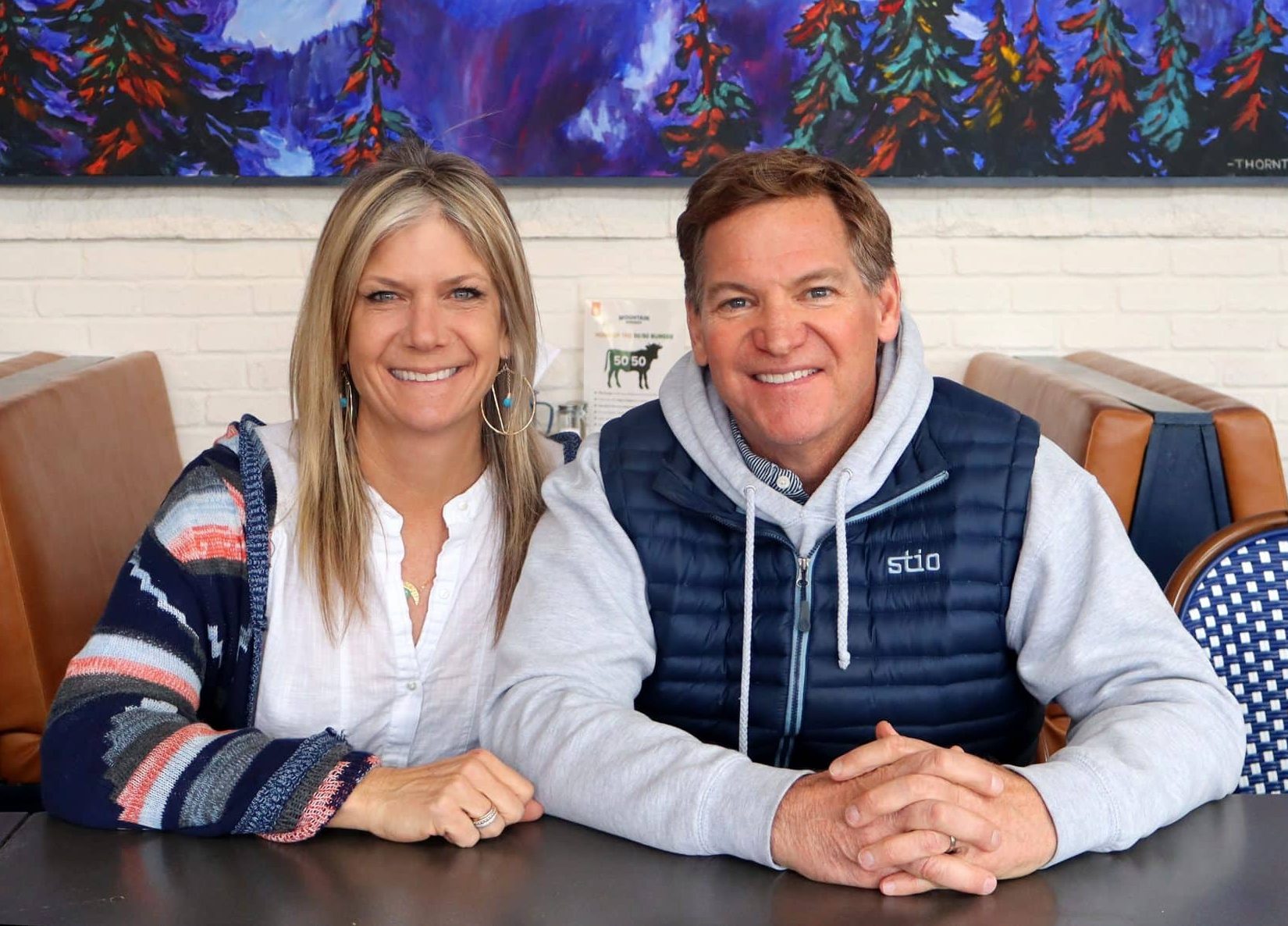
Sustainability Minded Bend Businesses
While other businesses in Bend don’t specifically apply the nature-positive model, some are moving forward robust sustainability initiatives.
For Hayden Homes Amphitheater in the Old Mill District, it all started when musician Jack Johnson refused to play at venues with single-use water bottles.
“After that, we thought: What else can we do?” said Beau Eastes, marketing director at the Old Mill District. “We started recycling and upcycling more and more items. We take banners from shows that can’t be reused and make them into bags for staff. We collect random screws and nails to be donated.”
During shows, the waste stations, with trash, recycling and compost, are staffed by garbage concierges of sorts, who answer people’s questions about what bin to use. After a show, staff members sort the bins. If they’re attentive, they might find the “Trashy Golden Ticket,” an incentive hidden in one of the receptacles, which they exchange for a prize.
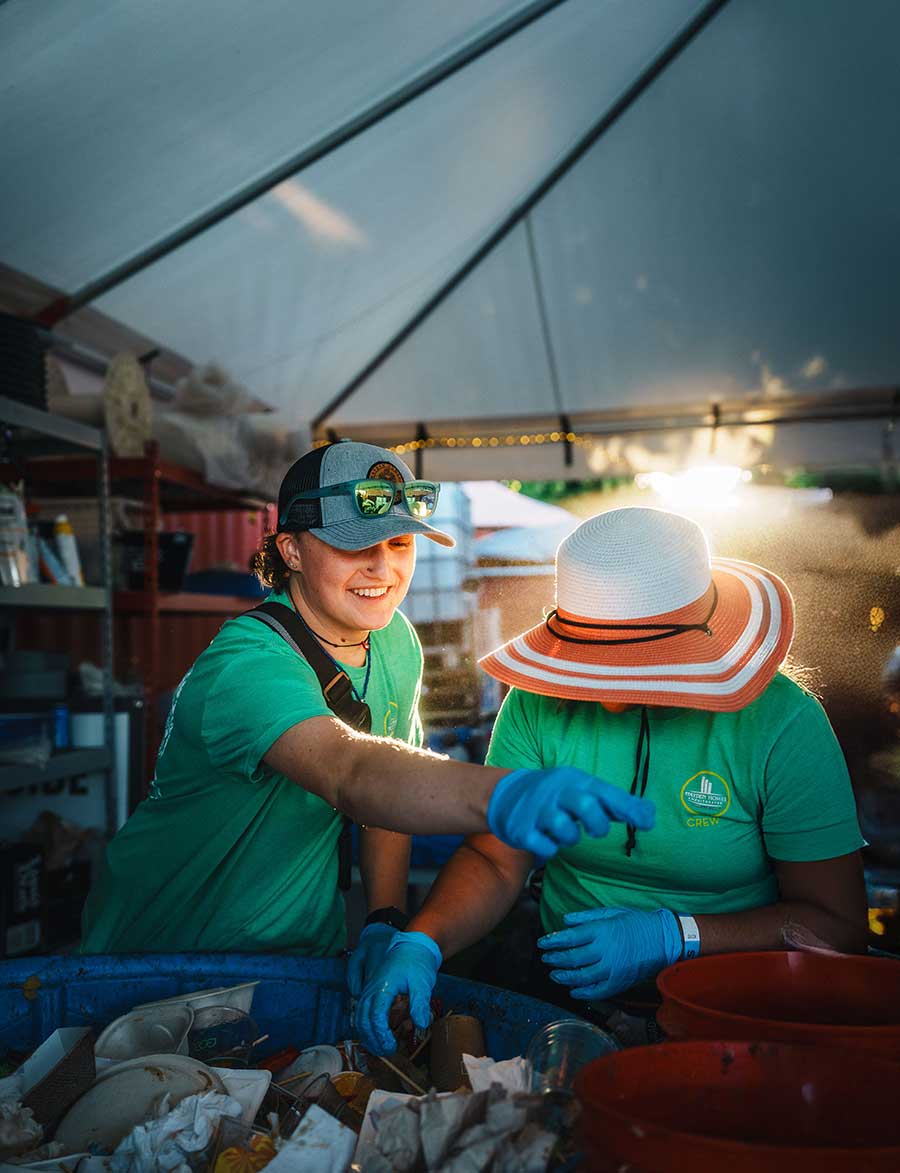
In 2024, the amphitheater’s landfill diversion rate was 87%, or 195,000 pounds of trash. In 2025, it plans to be 90%. This and other initiatives, such as bike parking and compostable tableware, make the amphitheater one of the greenest music venues in the country.
Local breweries are also doing their part. Alongside partnerships with conservation nonprofits, Deschutes Brewery has invested in energy-efficient heating, cooling and lighting on its Bend campus. Worthy Brewing’s nonprofit, Worthy Garden Club, advocates for soil health, native pollinators and dark sky conservation.
“A lot of businesses might think there is nothing they can do,” said Fields. “They might be overwhelmed by the crisis. Some aspects of a nature-positive strategy cost money, which can seem like an obstacle. But everybody can do something. Even little [steps] count. It’s important to show up in any way you can.”
Learn more about the Nature Positive Initiative.

